Journal for the Critique of Science, Imagination, and New Anthropology (i.e. Časopis za kritiko znanosti, domišljijo in novo antropologijo) (ISSN 0351-4285)
Editor-in-chief: dr. Andrej Kurnik.
Managing editor: Arne Zupančič.
Members of the editorial board: Uršula Berlot Pompe, Barbara Beznec, Tatjana Greif, Saša Hajzler, Nikolai Jeffs, Svit Komel, Andrej Kurnik, Andrej Pavlišič, Dali Regent, Danijela Tamše, Boris Vezjak, Simona Zavratnik, Arne Zupančič.
International Editorial Board: Dan Chodorkoff (Vermont), John Holloway (Puebla), Sandro Mezzarda (Bologna), Nela Pamuković (Zagreb), Ian Parker (Manchester), Vjeran Pavlaković (Reka), Maple John Razsa (Maine), Alan Soble (Philadelphia), Raúl Zibechi (Montevideo).

About the members of the editorial board
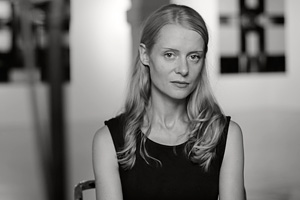
Uršula Berlot Pompe
Ph.D., assistant professor and lecturer at the Academy of Fine Arts and Design, University of Ljubljana. She works as a visual artist and art theorist and is interested in connecting art with science. She has received important international awards for her art (Schering Stiftung Berlin, Pollock Krasner - New York, Henkel Youth Artist Award - Kulturkontakt in Vienna) and is the author of an academic monograph on Duchamp and numerous articles on art theory.
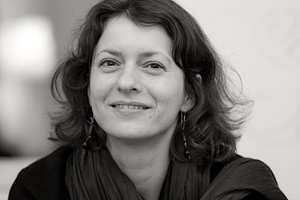
Barbara Beznec
Political scientist of international relations. Translator and author of numerous academic articles and expertises. From 2006 to 2012 she was the editor-in-chief of the Journal for Critique of Science. She is a researcher involved in several national, international, and EU projects in the field of migration. Longtime activist for citizenship rights, freedom of movement, and autonomous spaces. Currently she is finishing her PhD on European citizenship.

Tatjana Greif
Holds a PhD in Archaeology. She studied at the Faculty of Arts University of Ljubljana and works both as a theorist and as an activist on questions concerning sexual orientation and gender identity, culture, art, and the politics of LGBT. She is the editor-in-chief of Skuc-Vizibilij and the former editor of the journals Arheo and Delta. She has published over 500 occasional and academic works, is active in the international LGBT movement and has received several scholarships, e.g. the Fulbright scholarship to the USA.

Saša Hajzler
Saša Hajzler, M.Sc. is a doctoral candidate in the History of Europe and the Mediterranean programme at UP FHŠ and a research assistant in the Political History programme at the Institute of Contemporary History in Ljubljana. Her doctoral research explores self-organising political movements (»from down to up approach«) in the post-Yugoslav neighbourhood, their political thought, activism and practice of action in the global socio-political struggle for justice, freedom of movement and against exploitation. She is a long-time activist in the field of autonomous and self-organised spaces, migration and in the global feminist struggle against militarism, co-editor of an independent journal on the city and municipalist politics – Prelom, author of scientific, popular and professional publications in newspapers, collections, popular and scientific journals in Slovenia and abroad. She has been active in various international movements and initiatives and has visited autonomous spaces, initiatives and movements in Greece, Italy, Austria, Macedonia, Germany, Turkey, Ukraine, Spain, Morocco, Serbia, Poland, Croatia, Ireland, Czech Republic, Slovakia, England, Belgium, France, Switzerland, Albania, Lithuania, etc. She is a contributor to ČKZ and Radio Študent. She studied law, completed a Master's degree in Law and Real Estate Management, and a Master's degree in Democracy and Human Rights in Sarajevo.

Nikolai Jeffs
Holds a BA and PhD from the University of Essex (UK), where he also taught. He has published several articles and book chapters in the field of literary, cultural, and political critique. He is an editor of a reader in postcolonial studies (2007) and, together with Andrej Pavlišič, the coauthor of a documentary Borili se bomo proti njim: kriki k razumevanju starega nasilja nove Evrope (We Shall Fight Them: Howlings Towards Understanding the Old Violence of New Europe, 2004). In the past he also worked as a lecturer at the University of Ljubljana but now teaches at the Faculty of Humanities of the University of Primorska.
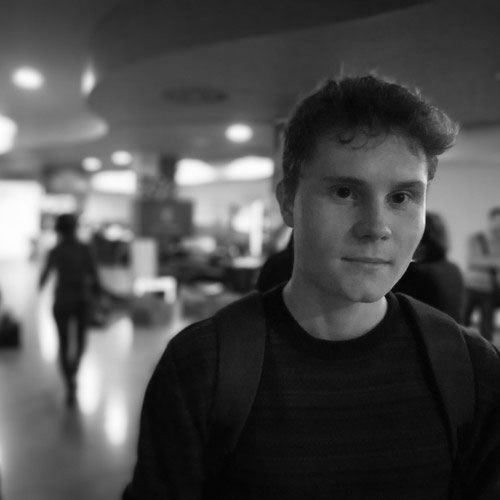
Svit Komel
Svit Komel, M.Sc. is a PhD student in Legal History and a contributor to Radio Študent. He holds a Master's degree in History and Philosophy of Science and thus he started a radio show Svepisteme on everything related to the history of science. His research interests include the 18th and 19th century census practices, in particular the parallels between the standardisation of units of measurement, the codification of law and land surveying expeditions. He is currently studying the impact of cadastral surveys on the implementation of land alienation or the transformation of land property in the Austrian Empire.
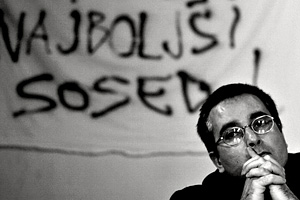
Andrej Kurnik
Andrej Kurnik teaches at the Faculty of Social Sciences, University of Ljubljana. His research interests are mainly focused on practices of social movements, conceptual innovations produced in social struggles, methodologies of participatory and militant research, the critique of political economy, citizenship, and direct democracy. He is also activist of global social movements. Has has participated in struggles for the rights of the Wrased, migrant workers, for autonomous social spaces; within the Occupy Movement (15o) he elaborated the concept of welfare based on the common. He is currently in Maribor where he is developing militant research the aim of which is to build a solidarity network with the criminalized participants of uprisings and to engender the decriminalization of the huge social unrest that happened in this city at the end of 2013.

Andrej Pavlišič
He holds a BA in political science. He is currently a PhD student of sociology of culture at Faculty of Arts, University of Ljubljana. His main research interest are politics of autonomy. Specifically he is engaged with its conceptualizations and practices, its history and the future. He is an active user of Autonomous cultural centre Metelkova mesto, Ljubljana and has been actively involved in grassroots political movements for more than a decade. He joined the editorial board of Journal for Critique of Science in 2012. He was the editor of its issue “Metelkova” (Študentska založba, 2013).
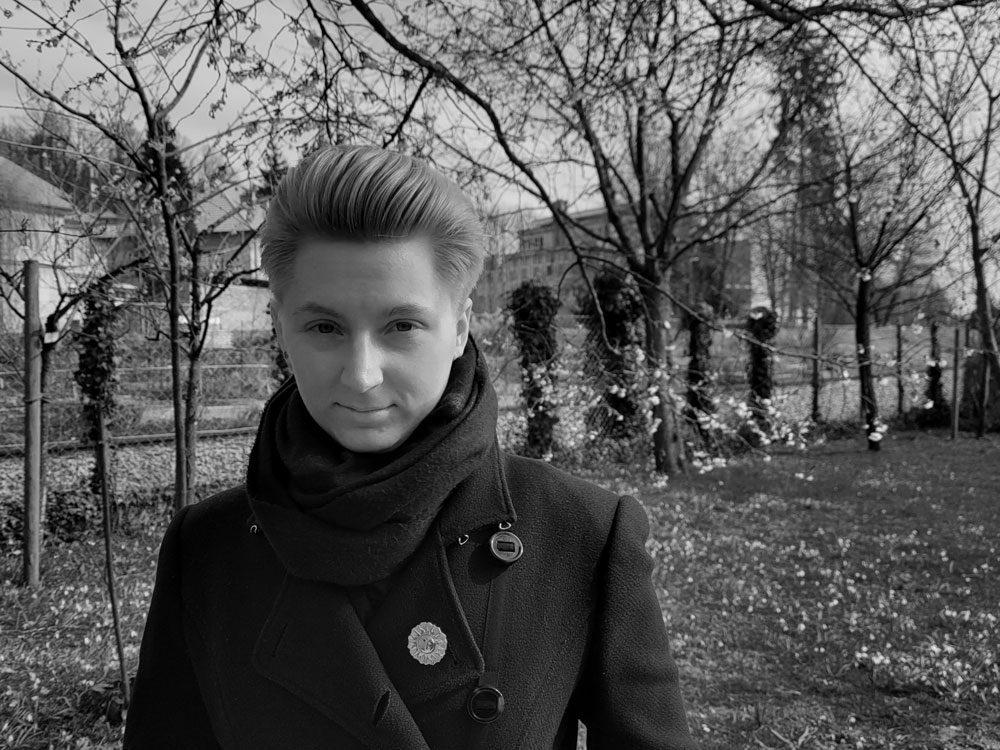
Dali Regent
Dali Regent, M.Sc. is a PhD student in theoretical psychoanalysis at the Faculty of Arts. She is currently working on her PhD in the field of violence, cruelty and sexuality under the supervision of Dr. Eva D. Bahovec. She writes and translates political texts for the online medium Disenz and is also involved in practical philosophy and has conducted more than fifty philosophy workshops as part of various projects. In 2019, she also founded the association House of Philosophy. Her philosophical work covers the fields of women's studies, epistemology and the philosophy of Friedrich Nietzsche. She has worked as a volunteer for Legebitra for several years.

Boris Vezjak
Associate professor of philosophy in the department of philosophy in Faculty of Arts and Faculty of Education in Maribor, Slovenia, where he also teaches. His field of interest cover various topics, such as history of philosopy, discourse theory, media analysis and theory of argumentation. He is the author of many articles and has published several books and translations, including these titles: »Plato: Charmides« (1994), »Plato: Philebus« (2000), »Plato: Parmenides« (2001), »They were breathing forcefully: a commentary and chronology of the Petek case« (2005), »The relaxed ideology of Slovenes: on political implications of the philosopheme relaxedness« (2007) and »Mistakes and fallacies in argumentation: a guide to bad argumentation in quotidian life« (2007, together with Janez Bregant), »In media res: journalism between ethics, politics and capital« (2008), »The Twilight of media autonomy: struggles for political hegemony 2004-2008« (2009), »Paranoia, manipulation and rationality« (2010), »Introduction to Socrates for young people« (2011) and »Ad populum: analyses of social discourse« (2012).
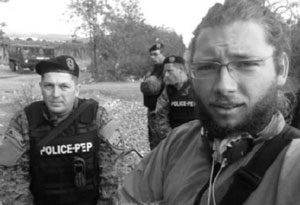
Arne Zupančič
Arne Zupančič is a socio-political worker. His chief research interests are migrations and Kurdish liberation movement. His previous professional, voluntary and activist engagements include Voluntary Fire Brigade LJ-Trnovo, Radio Študent and Autonomous Factory Rog. He currently earns his living as a tourist worker. He is also involved in the projects of the Pedagogical Institute and the Peace Institute as a guest lecturer in primary and secondary schools.
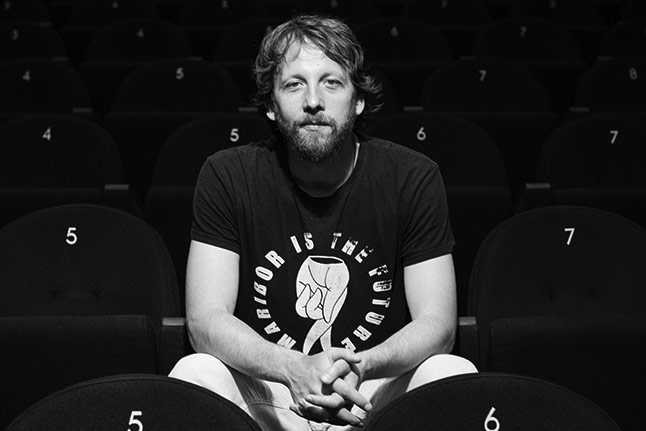
Žiga Brdnik
Žiga Brdnik (1985) holds a Bachelor's degree in Philosophy and Journalism from the Faculty of Arts and the Faculty of Social Sciences, University of Ljubljana. He is an independent journalist, film critic and editor who, in addition to ČKZ, edits an independent Ljubljana newspaper Prelom, is a member of the editorial board and regular writer of Ekran magazine, and also writes for Razpotja, Kino! and Dialogi magazines and the portal Disenz. In 2022, he earned the Ekran magazine award for the Slovenian Film Publicist of the Year.
Photo: Matjaž Rušt
About the members of the International editorial board
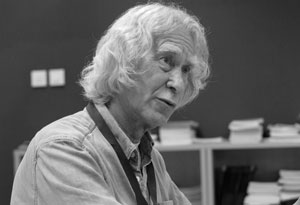
Dan Chodorkoff
Dan Chodorkoff is a writer and educator who co-founded The Institute for Social Ecology. He received his PH.D in cultural anthropology from the New School for Social Research where his studies focused on the integration of alternative technologies like solar energy, wind energy, and community gardens into grassroots community development efforts on the Lower East Side, where he worked for twelve years in the 70s and 80s. A former college professor, his writing has been translated into five languages and appeared in numerous journals and anthologies. He is a life-long activist in the peace and ecology movements, who views resistance to hierarchy and domination among people as integrally linked to the reharmonization of people and nature. Dan is currently living in Northern Vermont where he gardens, writes, plays harmonica, and works on environmental justice issues.
Photo: Anej Ivanuša
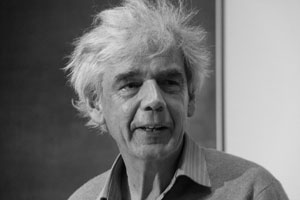
John Holloway
John Holloway is a Professor of Sociology at the Instituto de Ciencias Sociales y Humanidades in the Benemérita Universidad Autónoma de Puebla, Mexico. He has published widely on Marxist theory, on the Zapatista movement and on the new forms of anti-capitalist struggle. His book Change the World without taking Power (Pluto, 2002, reprinted 2010) has been translated in more than ten languages and has stirred an international debate. His monograph Crack Capitalism (Pluto, 2010), takes the argument further by suggesting that the only way in which we can think of revolution today is as the creation, expansion, multiplication and confluence of cracks in capitalist domination.
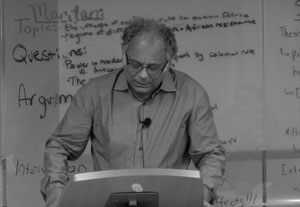
Sandro Mezzadra
Sandro Mezzadra works as a Professor of Political Theory at the University of Bologna, where he teaches postcolonial studies and contemporary political theory. He has published widely on the areas of migration, postcolonial theory, contemporary capitalism, Italian operaismo, and autonomist Marxism. His works include numerous book chapters and journal articles that have been translated into ten languages: Italian, French, German, Spanish, Finnish, Greek, Slovenian, Portuguese, Chinese and Japanese. His most recent monographs (coauthored with Brett Neilson) are Border as Method, or, the Multiplication of Labor (2013, Duke University Press), and The Politics of Operations: Excavating Contemporary Capitalism (2019, Duke University Press).

Nela Pamuković
Nela Pamuković is a feminist and anti-war activist, advocate for survivors of sexual violence, and one of Croatia’s representatives at the European Women’s Lobby. She joined her first consciousness-raising women’s group in 1987; since then she has become an active member of multiple women’s organizations and movements in Croatia, and has been a key individual in constructing a network of feminist communities throughout former Yugoslavia. She is also a co-founder of the Center for Women War Victims – an organization that provides support to women survivors of war, human trafficking and sexual exploitation with counselling, access to legal services and other practical assistance. She also played a key role in the preparations and organization of the Women’s Court – A Feminist Approach to Justice.

Ian Parker
Ian Parker is a British psychologist and psychoanalyst. He is Emeritus Professor of Management in the School of Business at the University of Leicester. Parker first lectured at Manchester Polytechnic from 1985, was appointed Professor of Psychology at Bolton Institute in 1996, and returned to Manchester as Professor of Psychology at Manchester Metropolitan University in 2000. In 2012 he was suspended for questioning, in his capacity as departmental union representative for the University and College Union, work-load and appointment procedures. There was an international campaign for his reinstatement. In 2013 he resigned his post, and moved to the University of Leicester, and also took up visiting professorial positions at several different universities.
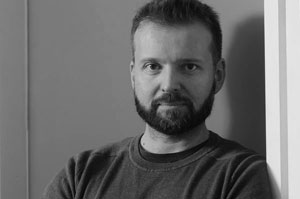
Vjeran Pavlaković
Vjeran Pavlaković is an associate professor in the Department of Cultural Studies at the University of Rijeka, and holds a Ph.D. in History from the University of Washington. He has written numerous articles on the topics of Yugoslavs in the Spanish Civil War, the politics of memory, and transitional justice in the former Yugoslavia. Recent publications include: The Battle for Spain is Ours: Croatia and the Spanish Civil War 1936–1939 (2014), Remembering War the European Way: Croatia’s Commemorative Culture on the Eve of EU Membership (in Croatia and the European Union: Changes and Development, Pero Maldini and Davor Pauković, eds., 2015), Yugoslav Volunteers in the Spanish Civil War (2016), and Framing the Nation and Collective Identity (Vjeran Pavlaković and Davor Pauković, eds.). He was a lead researcher on the project FRAMNAT – Framing the Nation and Collective Identity in Croatia: Political Rituals and the Cultural Memory of Twentieth Century Traumas (2014–2018).
Photo: SNV.
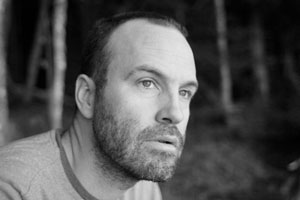
Maple J. Razsa
Maple Razsa is an Associate Professor of Global Studies at Colby College. He is committed to using text, images, and sound to embody the lived experience and the political imaginations of contemporary social movements. Trained as a filmmaker and anthropologist at Harvard University, Maple has held fellowships from several different universities and foundations. His films have been shown in festivals around the world. The Society for Visual Anthropology named The Maribor Uprisings the Best Feature Film of 2017. His book Bastards of Utopia: Living Radical Politics After Socialism (Indiana University Press, 2015) won the William A. Douglass Prize in Europeanist Anthropology. His current research is on the autonomy of migration and the struggle of refugees and European activists to enact freedom of movement in Europe.
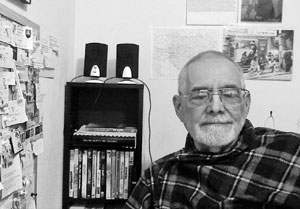
Alan Soble
Alan Soble is an American philosopher and author of numerous books and articles on the philosophy of sex and love. He is the founder and the first director (1977–1992) of the Society for the Philosophy of Sex and Love. He taught at the University of New Orleans from 1986 to 2006 where he was University Research Professor and now Emeritus. Among his monographs are The Structure of Love (1990), The Philosophy of Sex and Love (1998, 2008), and Pornography, Sex, and Feminism (2002). He edited Sex from Plato to Paglia: A Philosophical Encyclopedia (2006) and the anthologies Philosophy of Sex (1980–2017), Sex, Love, and Friendship (1997), and Eros, Agape, and Philia (1989).

Raúl Zibechi
Raúl Zibechi is a researcher and a theorist in social movements, writer, and a journalist for various media. He was a militant of the student movements, movements against military dictatorship, antimilitarist movements. Since 1986, as a journalist and researcher-activist, he has visited almost every country in Latin America, with special emphasis on the Andean region. He knows a good part of the movements in the region, and collaborates in training and dissemination tasks with urban Argentine movements, Paraguayan farmers, and Bolivian, Peruvian, Mapuche and Colombian indigenous communities. All his theoretical work is aimed at understanding and defending the organizational processes of these movements. He has authored several books; Dispersing Power (2010) and Territories in Resistance (2012) were translated in English.


